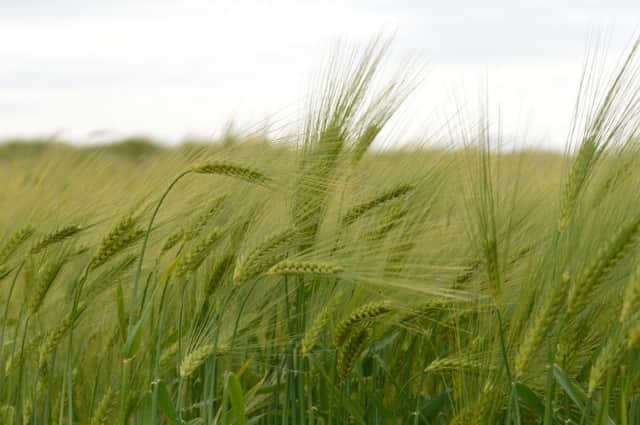Colin Campbell: The goal is solutions to global challenges


As we move further into our post-industrial economy, exports are no longer goods and services but – increasingly – knowledge, expertise and innovation. Moreover, Scotland has a substantial innovation and export legacy with innumerable examples over recent centuries.
The James Hutton Institute is a 21st-century embodiment of the export potential of this sort of ingenuity: a world-leading research organisation whose work is making an impact and generating revenues in territories across the globe. The food we eat, the air we breathe; everything that we use and consume in this world derives from understanding, developing and applying what’s around us, so we cannot afford to drop the pace on understanding nature, especially with a 50 per cent increase in population staring us in the face.
Advertisement
Hide AdAdvertisement
Hide AdThe James Hutton Institute specialises in finding solutions to global challenges in crops, land, water and the environment, in particular how to make the most of our available resources to ensure there is enough food, water and energy to cover the needs of a growing global population, without ruining the planet in the process.
Right now we have institutes and companies from China, India, the Middle East, Europe and South America looking to tap into our research, innovation and apply new tools, techniques and advice from us. Whether it is soil science, water expertise or crop and plant science, or the dynamic of rural communities, fellow scientists, land managers and regulators value us as partners and advisors and our work is applied day and daily in a raft of industries and professional contexts at home and abroad.
However, it is not one way. Our participation in international research brings back knowledge from partners and their contexts to Scotland to enrich and invigorate what we do here. This represents an inward investment of ideas that we can use and adapt. Developed countries tend to be at the forefront of new enabling technologies, such as gene editing, robotics and enhanced computational approaches to deal with big data, but there is a wider acknowledgement of the role of social disciplines in inter- and trans-disciplinary science, working in teams with non-researchers and stakeholders.
Constraints in developing countries often fuel innovation too. Low availability of mineral fertilisers and pesticides mean they are often ahead of us in developing nature-based solutions and more integrated farming systems, so we have much to learn from their experiences for low-tech solutions to land management. The Institute is well respected in this global research market for delivering fundamental and applied science to drive the sustainable use of land and natural resources to underpin many of the Sustainable Development Goals.
Our brand is strong and founded on excellent science that delivers global impact, following the inspiration of James Hutton after whom we are named. We believe that against domestic and international challenges, our research, knowledge generation and support for policy and industry are more relevant than ever. There is a clear and vital mandate for the work of the Institute, and we have developed new initiatives like the International Barley Hub to deliver highly innovative solutions to bring people together internationally, nationally and locally. We are proud to deliver a programme of research for the Scottish Government that is relevant, respected and responsive to the needs of Scotland’s communities and to the rural economy both in the short and long term.
By working in the space between different disciplines, and also with non-scientists and the people who own the problem, we will continue to deliver outcomes and impact to support Scottish policy, industry and stakeholders. To deliver on our mission of conducting excellent science and working across disciplines with business, policy and society, we need recognition at the national, UK, European and global level of the fact that science and research drive industrial and economic growth – as well as our well-being.
• Professor Colin Campbell is chief executive of the James Hutton Institute, a world-leading scientific organisation. For more information visit www.hutton.ac.uk